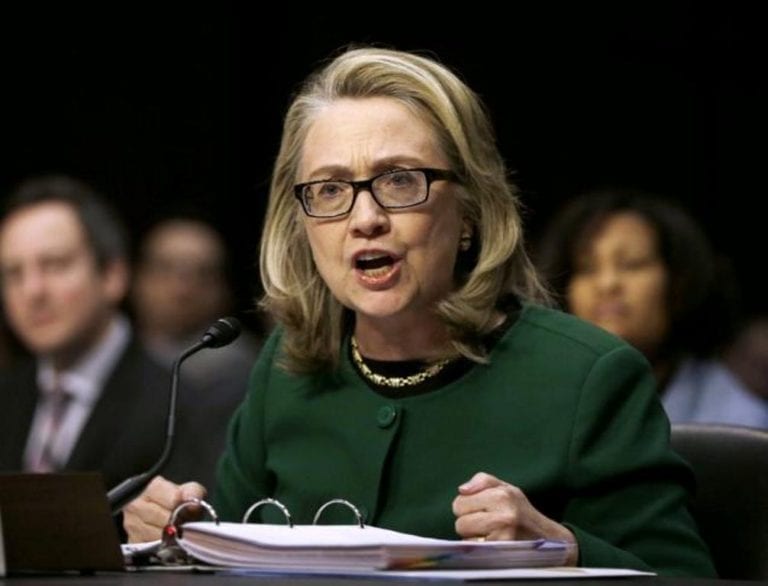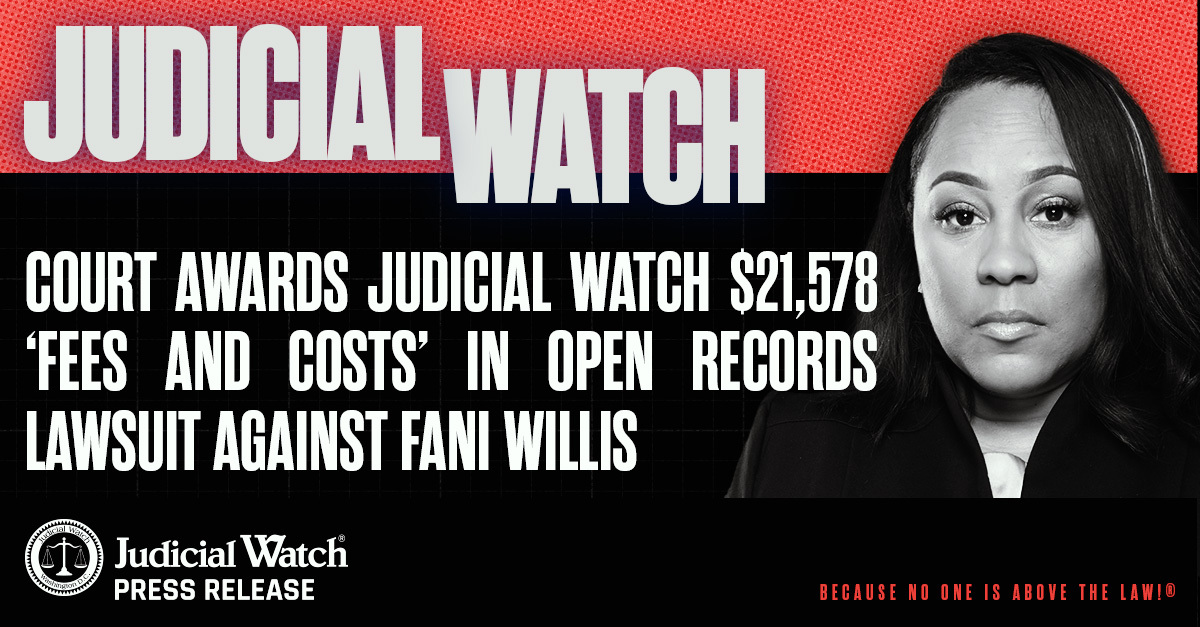

Judicial Watch Asks Federal Court for Additional Discovery: Seeks Testimony of Hillary Clinton


***Immediately after filing this request for further discovery, the court ordered Clinton, Finney and Bentel to respond by Tuesday, July 12 and for Judicial Watch to reply by Thursday, July 14. A hearing is set for Monday, July 18, 2016.
(Washington, DC) – Judicial Watch announced today that it submitted a request for permission to depose former Secretary of State Hillary Clinton; the Director of Office of Correspondence and Records of the Executive Secretariat (“S/ES-CRM”) Clarence Finney; and the former Director of Information Resource Management of the Executive Secretariat (“S/ES-IRM”) John Bentel. Today’s request arises in a Judicial Watch Freedom of Information Act (FOIA) lawsuit before U.S. District Court Judge Emmet G. Sullivan that seeks records about the controversial employment status of Huma Abedin, former Deputy Chief of Staff to Clinton. The lawsuit was reopened because of revelations about the clintonemail.com system. (Judicial Watch v. U.S. Department of State (No. 1:13-cv-01363)).
The court granted discovery on the clintonemail.com system and Judicial Watch deposed seven former Clinton top aides and current State Department officials, including top Clinton aides Cheryl Mills and Huma Abedin. Judicial Watch also deposed IT official Brian Pagliano, who asserted his Fifth Amendment right not to testify during the Judicial Watch deposition. In granting Judicial Watch discovery, the court ruled that Judicial Watch may seek permission for Hillary Clinton’s testimony, if necessary. Today’s brief argues that the Clinton testimony is necessary:
[Judicial Watch] recognizes the significance of asking a former agency head and presumptive nominee for president to sit for a deposition. As the primary driving force behind and principal user of the clintonemail.com system, however, Secretary Clinton’s testimony is crucial to understanding how and why the system was created and operated. It also is crucial to understanding why the secretary chose to use the system for all her official email communications, not only initially but also after the system proved to be so problematic for the department, top departmental officials, and the secretary herself. Plaintiff has attempted to obtain as much evidence as possible from other State Department officials, but Secretary Clinton is an indispensable witness and significant questions remain, including why records management officials apparently had no knowledge of the system when so many other officials used the system to communicate with her. Consequently, Secretary Clinton’s deposition is necessary.
The brief notes, “Although significant progress has been made in uncovering evidence concerning the creation and use of the clintonemail.com system and the State Department’s approach and practice for processing FOIA requests potentially implicating Secretary Clinton’s and Ms. Abedin’s emails, important questions remain.” Judicial Watch’s brief also points to this week’s findings announced by FBI Director James Comey as providing additional reasons for Clinton’s testimony:
- In his statement announcing the conclusion of the FBI investigation into Clinton’s email practices, Comey stated, “The FBI also discovered several thousand work-related e-mails that were not in the group of 30,000 that were returned by Secretary Clinton to State in 2014.” The FBI’s finding raises questions about Clinton’s assertions in her August 8, 2015, declaration that she directed that all her emails on the clintonemail.com system in her custody “that were or potentially were federal records be provided to the Department of State” and that “on information and belief, this has been done.” Clinton’s deposition is necessary to inquire about the basis of these assertions in light of the FBI’s finding.
Judicial Watch alerted the State Department and Justice Department last week that it would seek this additional testimony from Clinton and others. Justice Department lawyers informed Judicial Watch attorneys that the State Department opposes the request.
Judicial Watch seeks the testimony of Finney because, as chief FOIA officer for the Secretary’s office, he “had day-to-day responsibility for records management and research, including conducting and coordinating searches in response to FOIA requests, during Secretary Clinton’s and Ms. Abedin’s tenure.”
Judicial Watch seeks the deposition of Bentel for several reasons. When asked by his staff about Clinton’s use of a non-state.gov email account to conduct government business, “Mr. Bentel instructed them not to discuss the issue. As a result, obtaining Mr. Bentel’s testimony is essential to determine what he knew, when he knew it, and why he did not share the information with the appropriate State Department employees responsible for responding to FOIA requests.”
“Hillary Clinton can answer questions about her email practices that no other witness can,” stated Judicial Watch president Tom Fitton. “Her testimony will help the court determine if, how, and why FOIA was thwarted by the Clinton email system.”
Judicial Watch has a separate request for Clinton’s testimony pending before U.S. District Court Judge Royce Lamberth, who ruled on March 29 that “where there is evidence of government wrong-doing and bad faith, as here, limited discovery is appropriate, even though it is exceedingly rare in FOIA cases.”
For full case history on the Abedin lawsuit, click here.
###















